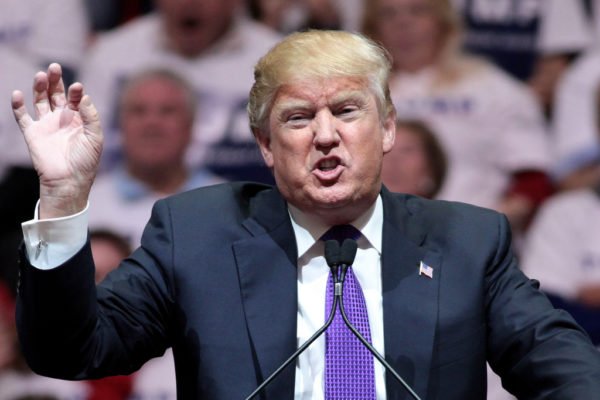ObamaCare Repeal: President Trump Asks GOP Senators to Stand Behind Their Bill
In a rare healthcare speech, President Donald Trump has issued a challenge to Republican senators to rally behind their bill, on the eve of a crucial vote.
“Now is the time for action,” he said.
A procedural vote is due on July 25 as Republicans push forward in their attempt to repeal ObamaCare, President Barack Obama’s signature law.
However, among Republicans there is confusion about the bill and it is unclear whether the healthcare will pass.
Senator Ron Johnson told reporters: “I don’t have a clue what we’re going to be voting on.”
Senators will vote on a procedural motion to start debate on a health care bill.
Republicans have a majority in the Senate but there are deep divisions in their party on the issue.
Republican Senate leader Mitch McConnell said on the Senate floor: “Many of us have waited literally years for this moment to arrive and, at long last, it finally has.”
Donald Trump: “Let ObamaCare Die on Its Own”
ObamaCare Replacement: Republican Efforts to Find Alternative Fail
However, several senators have expressed unhappiness over the process, because it is not clear what they will vote on if the procedure vote passes.
There appear to be two choices – either a repeal-and-replace bill that has already struggled to win support across the party, or a bill that enacts repeal with a two-year delay, in the hope of finding agreement before that time elapses.
Senator John McCain, recently diagnosed with an aggressive brain tumor, will return to Congress to cast his vote.
President Trump increased the pressure on his party by warning them they had a duty to adhere to seven years of promises.
In a White House speech laced with frustration, he said: “To every member of the Senate I say this: The American people have waited long enough.
“There’s been enough talk, and no action. Now is the time for action.”
ObamaCare Repeal Bill: Some 22 Million Americans Could Lose Health Insurance over Next Decade
The president lambasted his predecessor’s overhaul of healthcare and stood alongside people he said were “victims” of the 2010 law.
ObamaCare extended healthcare insurance to about 20 million people but Republicans hate the way it introduced government-run marketplaces, where premiums have risen sharply for some people.
The GOP’s proposed alternative includes steep cuts to Medicaid, a healthcare program for the poor and disabled.
It removes ObamaCare’s individual mandate requiring all Americans to have health insurance or pay a tax penalty.
The non-partisan Congressional Budgetary Office (CBO) found the bill would strip 22 million Americans of health insurance over the next decade.
However, if the bill gets to the floor of the Senate, amendments could be added to change the various provisions.
A Republican politician has blamed “female senators” for the spluttering efforts by his party to pass a healthcare bill.
Blake Farenthold, a congressman from Texas, told a local radio station if a man from his state was responsible, he would challenge him to a duel.
“Some of the people that are opposed to this, they’re some female senators from the North East.”
If it was “a guy from south Texas” who was generating so much discord in the party, he said, he would ask them to settle their differences in a gun fight.
Susan Collins of Maine was one of three female Republicans who said they could not back the Senate’s last healthcare plan, a repeal with two-year delay, which hit the buffers last week.
She has been strongly opposed to the Republican bill from the start over the cuts to Medicaid.
Republican Senators Lisa Murkowski of Alaska and Shelly Moore Capito of West Virginia also came out against the bill, expressing concerns over plans to weaken protections for people with pre-existing conditions and affordability.
There was an outcry when Republican Senate leader Mitch McConnell drafted the first healthcare bill in private among a group of 13 that did not include any women.

